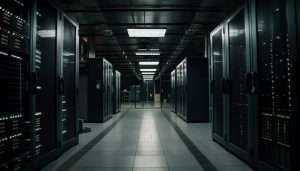- Introduction: When it comes to choosing the right server for your business, the decision often comes down to whether to use a dedicated server or a cloud server. Each option has unique benefits, and the right choice depends on various factors such as business size, growth potential, and budget. In this article, we’ll explore the key differences between dedicated and cloud servers to help you determine which is best suited to your business’s specific needs.
- Dedicated Servers: A dedicated server provides exclusive access to the hardware, giving businesses full control over their resources and environment. This type of server is ideal for businesses that need consistent, high-performance levels, such as e-commerce sites, gaming platforms, or companies that handle sensitive data. Dedicated servers are also highly customizable, allowing businesses to configure their hardware and software settings as needed. However, they come with higher upfront costs and require more hands-on management, either by internal IT staff or through a managed hosting provider.
- Cloud Servers: Cloud servers, on the other hand, offer flexibility and scalability, making them suitable for businesses with variable resource needs or those expecting rapid growth. With a cloud server, resources are shared across a virtualized environment, meaning you can scale up or down as demand fluctuates. This pay-as-you-go model is generally more cost-effective for businesses that may not need high levels of performance consistently. Cloud servers also provide high availability and redundancy, as resources are distributed across multiple physical locations, reducing the risk of downtime. While cloud servers are highly flexible, they may not offer the same level of control or performance predictability as dedicated servers.
- Key Factors to Consider: When deciding between a dedicated server and a cloud server, it’s essential to consider factors such as your business’s growth potential, resource requirements, and budget. Dedicated servers are best suited for businesses that need consistent performance and control, while cloud servers are ideal for businesses that prioritize flexibility and cost-efficiency. Other considerations include security requirements, as dedicated servers often offer enhanced security features, and the availability of technical expertise to manage the server environment.
- Conclusion: Both dedicated and cloud servers have their strengths and are designed to meet different needs. By carefully evaluating your business’s goals, budget, and technical requirements, you can select the server option that aligns best with your current and future needs. For businesses that require high performance and control, a dedicated server may be the right choice, while those seeking flexibility and scalability may benefit from the advantages of a cloud server.




